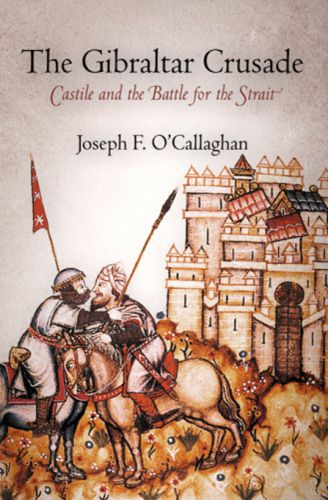
Joseph F. O’Callaghan
The Gibraltar Crusade: Castile and the Battle for the Strait
University of Pennsylvania Press, Philadelphia, 2010.
Professor O’Callaghan is a well-respected name in medieval studies, and not just for having served as a Director of the Center for Medieval Studies at Fordham University. Indeed, he was a founder of the Iberian specialty in Medieval Military Studies there. Once again, O’Callaghan has provided us with an immaculately-researched work that will be of use for years to come and, most importantly, a book which provides significant materials for further investigation and discussion. The Strait of Gibraltar was of great significance to the crusades to the Holy Land and to Iberia itself. O’Callaghan has provided a feast of information for the reader.
The reviewer had only two issues with this work. First, O’Callaghan does not explicitly define what he considers to be a Crusade [or a ‘crusade’? – Ed.], although he cites for each instance of “crusade” a Papal or other Church document endorsing the crusade in question, by which the reader may infer his premise. An explicit definition of Crusade really should have been stated at the beginning of the work – perhaps this would have been material for an Introduction? Second, the work is organized by Muslim tribe rather than by Castilian king, which results in the reader having to follow multiple persons and relationships across several chapters, an undertaking perhaps too difficult for students. This reviewer felt hard-pressed to keep all of the historical persons in mind, even using the charts, in the face of so much new information; yet this book is certainly worth the intellectual exercise!
One editorial problem, by a disservice has been done to O’Callaghan’s high-quality work by the press, is the inconsistent approach to punctuation in this book. There are several passages that are not punctuated properly, and there are several instances where similar passages are punctuated very differently. These inconsistencies make it difficult for the reader to understand exactly what is meant in several places, resulting in re-reading the passages several times to ensure accurate comprehension. The editors certainly should have addressed this issue.
In sum, however, this work truly makes a contribution to the field of medieval, Crusades, and Iberian studies on several levels. It is certainly worth purchasing, and Professor O’Callaghan is to be commended for this excellent book.
 Dana Cushing
Dana Cushing